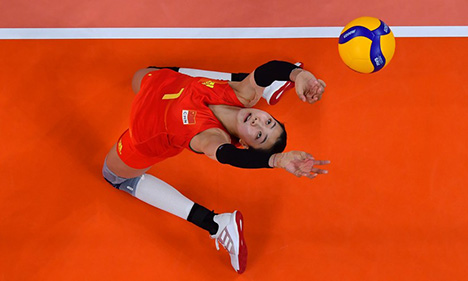NATO's expansion to worsen Ukraine crisis, decay European security
WARSAW/MOSCOW, April 16 (Xinhua) -- Transferring massive weapons to Ukraine, massing a large number of troops in eastern Europe, and welcoming Sweden and Finland to join the alliance, NATO has been very much engaged itself so far in the conflict between Russia and Ukraine.
Analysts say NATO's disregard of Russia's legitimate concerns on security issues and its continuous expansion is the root cause of the outbreak and escalation of this conflict. If it continues to slim down the small buffer zone left between Russia and itself, the situation will undoubtedly go worse.
DEPLOYMENT IN THE EAST
NATO's eastern flank usually refers to the three Baltic countries, namely Estonia, Latvia and Lithuania, as well as Poland, Slovakia, Hungary, Romania, and Bulgaria.
Before the escalation of the Russia-Ukraine conflict, NATO deployed one combat force in each of the three Baltic countries and Poland, and implemented a rotation mechanism with non-permanent garrison troops there.
But for now, NATO doubles the size of the four above-mentioned combat forces and declared four new NATO battlegroups in Bulgaria, Hungary, Romania, and Slovakia at the NATO summit held last month.
NATO is seen by many as a Cold War vestige, and has been questioned over the necessity of its existence after the end of the Cold War.
The military alliance promised in the 1990s that it would not expand "one inch eastward," according to then U.S. Secretary of State James Baker. However, led by the United States, NATO has expanded eastward five times since 1999, increasing the number of member countries from 16 to 30, advancing more than 1,000 km eastward, and reaching the Russian border.
RECRUITMENT IN THE NORTH
In addition to strengthening deployments on the eastern flank, NATO is also recruiting new members on the north wing. NATO Secretary General Jens Stoltenberg has repeatedly said that if Finland and Sweden apply to join NATO, NATO will welcome them and ensure that their entrance will be accepted soon.
In a recent interview with The Telegraph, Stoltenberg said that the alliance is "in the midst of a very fundamental transformation" that will reflect "the long-term consequences" of Russia's military operation.
Both Finland and Sweden have long pursued a policy of military non-alignment. After the disintegration of the Soviet Union, NATO has failed to win over the two countries several times.
But now Finland and Sweden made some changes in their positions in face of the Russia-Ukraine conflict, delivering anti-tank weapons and ammunition to Ukraine.
Some analysts point out that before the escalation of the Russia-Ukraine conflict, Russia had repeatedly confirmed and confided its red line to both the United States and NATO, for which both showed a total disregard. If NATO continues to fan the flames such as taking in new members, it will lead to further escalation of the situation.
CONFRONTATIONAL GESTURE
When answering a question about the prospect of the countries which may join NATO, Dmitry Peskov, press secretary of Russian President Vladimir Putin, told reporters on Monday that further expansion of NATO, including the admission of Finland and Sweden into the alliance, will not contribute to security in Europe.
"In itself, the alliance is rather a tool sharpened for confrontation. This is not an alliance that ensures peace and stability. Further expansion of the alliance, of course, will not bring additional security to the European continent," the Kremlin spokesman said.
Dmitry Belik, a member of Russia's State Duma Committee on International Affairs, said on Monday that NATO seeks to build up its military presence near the Russian borders, but the entry of Finland and Sweden into NATO will not benefit these countries, and "Russia will not watch this indifferently."
"This issue seriously affects our security, so we will be forced to take retaliatory steps," he told the Izvestia newspaper.
"The accession of Finland and Sweden to NATO puts them in a very difficult position," he added.
According to military expert Viktor Litovkin, in the event that Finland and Sweden decide to join NATO, Russia will justifiably strengthen the Russian-Finnish border, as well as the entire water area of the Gulf of Finland.
"Russia will have to strengthen ground forces and air defense, deploy significant naval forces in the Gulf of Finland in the event of Finland and Sweden joining the alliance," the expert noted.
Photos
Related Stories
- Ukraine opens 9 humanitarian corridors
- Ukraine says fighting for Mariupol continues
- Facts about Russia-Ukraine conflict: Ukraine, Russia conduct fourth prisoner exchange
- Russia-Ukraine conflict wreaks havoc on African economies, says expert
- Russia-Ukraine conflict wreaks havoc on African economies, says expert
Copyright © 2022 People's Daily Online. All Rights Reserved.










